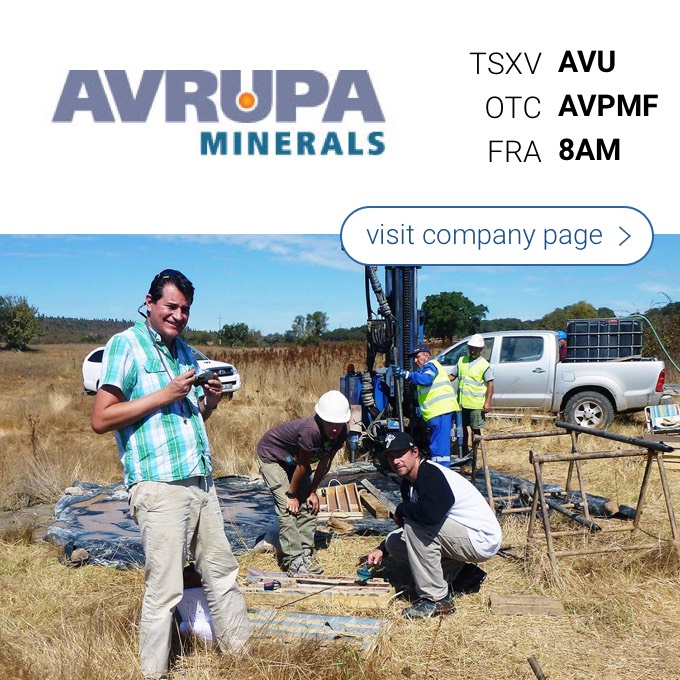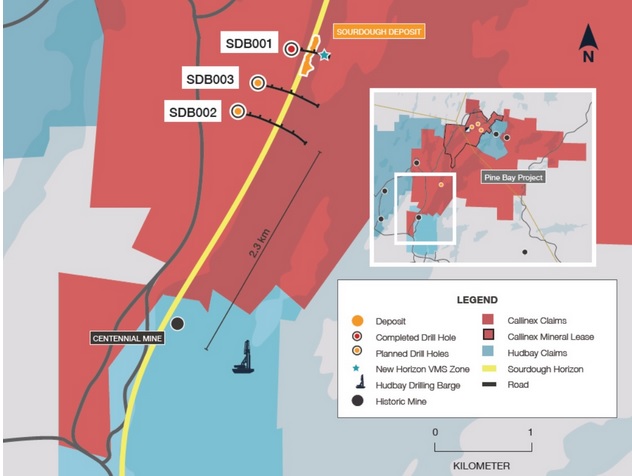We promised to write a report on the Preliminary Economic Assessment of Golden Arrow Resources’ (GRG.V) Chinchillas silver project in Argentina. Now that the PEA has been filed on SEDAR, this report will provide you with the main takeaways.
[download_link link=”http://www.caesarsreport.com/freereports/CaesarsReport_2014-02-18.pdf” variation=”blue”] DOWNLOAD REPORT [940kB][/download_link]
[gview file=”http://caesarsreport.com/freereports/CaesarsReport_2014-02-18.pdf”]
[download_link link=”http://www.caesarsreport.com/freereports/CaesarsReport_2014-02-18.pdf” variation=”blue”] DOWNLOAD REPORT [940kB][/download_link]
[fancy_header3]TEXT VERSION[/fancy_header3]
[margin20]
Introduction
We promised to write a report on the Preliminary Economic Assessment of Golden Arrow Resources’ (GRG.V) Chinchillas silver project in Argentina. Now that the PEA has been filed on SEDAR, this report will provide you with the main takeaways.
Even though the PEA at Chinchillas isn’t shocking, we are encouraged by the ability of Golden Arrow to turn an asset it acquired quite cheap (total acquisition cost of just $1.8M of which a total of $1.3M is payable by July 2015. An additional payment of $1.2M is due when commercial production starts) into a project with an after-tax NPV6% of $133M using a silver price of $22/oz.
The current resources and proposed development plan
This PEA is based on the resource estimate which was released in May last year which contained just over 80 million ounces of pure silver and 775 million pounds of zinc and lead, resulting in a resource estimate containing almost 105 silver-equivalent ounces.
The concept is to develop an owner-operated open pit silver-lead-zinc mine with an on-site concentrator using conventional flotation concentration methods to produce a lead and zinc concentrate (both concentrates will very likely be shipped to a smelter using the port of Antofagasta in Chile. This means that the Chinchillas concentrate could easily be shipped to Asia). Power is available at a nearby village but is insufficient to fulfill the needs of the processing plant. This means Golden Arrow will have to find additional power supply, and diesel generators are the most likely source. The water would be sourced from local and regional wells.
The capital expenditures and operating expenditures
The capital expenditures were calculated with an accuracy of ~35%, and show an initial capex of $202.3M and a sustaining capex of $56.8M. Whilst a capex of $202M might seem a bit expensive for a 6,000 tpd operation, we would like to emphasize this number includes a 25% contingency, which is much higher than a 10 or 15% contingency which is usually used in economic studies. As such, we are quite confident the $202M won’t change that much in further stages (PFS, FS).
Approximately $85M will be spent on the processing plant and $36.5M will be spent on mining capex and pre-stripping. The initial tailings cost is just $16.5M, but most of the expenses on tailings will be incurred as sustaining capex, as approximately 67% of the total sustaining capex (pre-contingency) consists of Tailings Management Facility. As just $22.3M of the initial capex goes towards mining equipment, we’d be interested to see the numbers for the project when using a contractor model instead of the owner-operating model.
The operating expenditures are relatively high at $27.96 per tonne, and this is mainly caused by the processing cost of $16/t. Approximately 64.5 million ounces of silver will be produced over a 12 year mine life, which results in a cash cost per ounce of silver of $10.96/oz excluding by-product credits. The cost per ounce is very acceptable, but the relatively high capital expenditures cause the internal rate of return to be relatively low at just 12% using a silver price of $19/oz. If one uses a silver price of $22/oz as base case scenario, the IRR increases to 17.5% which is already more acceptable.
Applicable tax rates
This PEA has included a provincial mining royalty of 3% on the mine head value and a federal income tax at 35%. The export tax rate has been assumed at 7.5%, which is based on a 10% tax rate less a 2.5% credit for projects located in the Puna region, as outlined in Resolution No. 762/93 of the Ministry of Economy of Argentina.
However, as the project is located in Argentina’s Jujuy province, we think it’s very likely the provincial government will take an 8% direct stake in the project, as it for instance did with Orocobre’s (ORL.TO) lithium project. We don’t necessarily see this as negative, as a direct involvement of the local government will very likely speed up the future permitting process.
Sensitivity Analysis
When using the base case scenario of $22 silver and a zinc and lead price of $1/lbs, the after-tax NPV8% comes in at $98.5M. If the discount rate would be lowered to 6%, the NPV would increase by 35% to $133M, which is quite an improvement. However, as we said earlier in this report, these numbers are based on a life of mine capital expenditure of $259M, which includes a total of $51.8M in contingency costs. If a 15% contingency rate would be sufficient, the NPV8% would immediately increase to $115-118M, and the NPV6% would very likely come in higher than $150M.
On top of that, Golden Arrow is very confident it will be able to add more silver ounces to the resource estimate, as the upcoming drill program will be aimed at both upgrading and increasing the current resource estimate. As the mine life is currently just 12 years, every additional million ounces of recovered silver will contribute to the final NPV at a (decreasing due to the discount rate) rate of $11M per additional year (using a silver price of $22/oz) from year 13 on.
Conclusion
At first sight, an after-tax NPV8% of $98.5M using a silver price of $22/oz might not excite a lot of people, but we are encouraged to see the management was able to turn a project with a total price tag of $3M around into a project with a net present value of close to $100M and even $133M if one uses a discount rate of 6%.
On top of that, we think this PEA is very robust, as a contingency rate of 25% was used, compared to much lower contingency rates used in other PEA’s. If we use a contingency rate of 15%, the after-tax NPV’s would increase by approximately 15-18%. As there’s also additional exploration potential on the property, we are convinced the ultimate Net Present Value of the project will be higher than the current indications, and that’s probably the reason why the new Argentinean investor was willing to pay $3M for a 3% stake in the project.
[divider_top]
Disclosure: Golden Arrow Resources Corp. is a sponsoring company. The author also owns shares. Please see our disclaimer for current positions.













